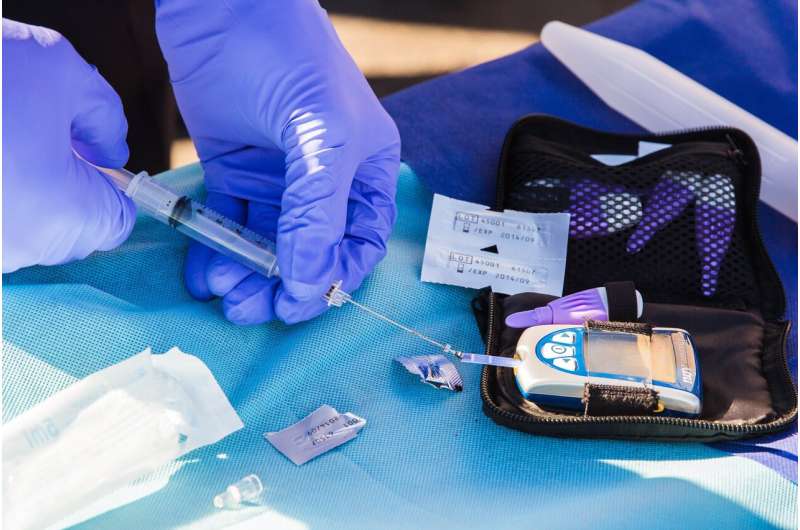Home » Health News »
Immune response to insulin could identify, help treat those at risk for type 1 diabetes

Researchers from the Barbara Davis Center for Childhood Diabetes at the University of Colorado Anschutz Medical Campus have found that immune responses to insulin could help identify individuals most at risk for developing Type 1 diabetes.
The study, out recently in the Proceedings of the National Academy of Sciences, measured immune responses from individuals genetically predisposed to developing Type 1 diabetes (T1D) to naturally occurring insulin and hybrid insulin peptides. Since not all genetically predisposed individuals develop T1D, researchers sought to examine T-cell immune responses from the peripheral blood that could occur before the onset of clinical diabetes.
“We want to know why people develop T1D, and this research has helped provide a lot more information and data as to what it looks like when genetically at-risk individuals are headed towards clinical diagnosis,” says Aaron Michels, MD, the study’s lead researcher, Associate Professor of Medicine at CU Anschutz and researcher at the Barbara Davis Center. “Ideally, you want to treat a disease when it’s active, so this is a need in our field to understand when people have an immune response directed against insulin producing cells.”
Researchers collected blood samples from genetically at-risk adolescents every 6 months for two years. Inflammatory T-cell responses to hybrid insulin peptides correlated with worsening blood glucose measurements and progression to T1D development. The results indicate an important advancement in identifying the risk of T1D early as well as the potential for intervention.
“There are now therapies used in research studies that have delayed the onset of clinical type 1 diabetes,” says Michels. “Patients with these specific immune responses, may benefit from immune intervention to delay T1D onset and possibly prevent it for years.”
Source: Read Full Article


